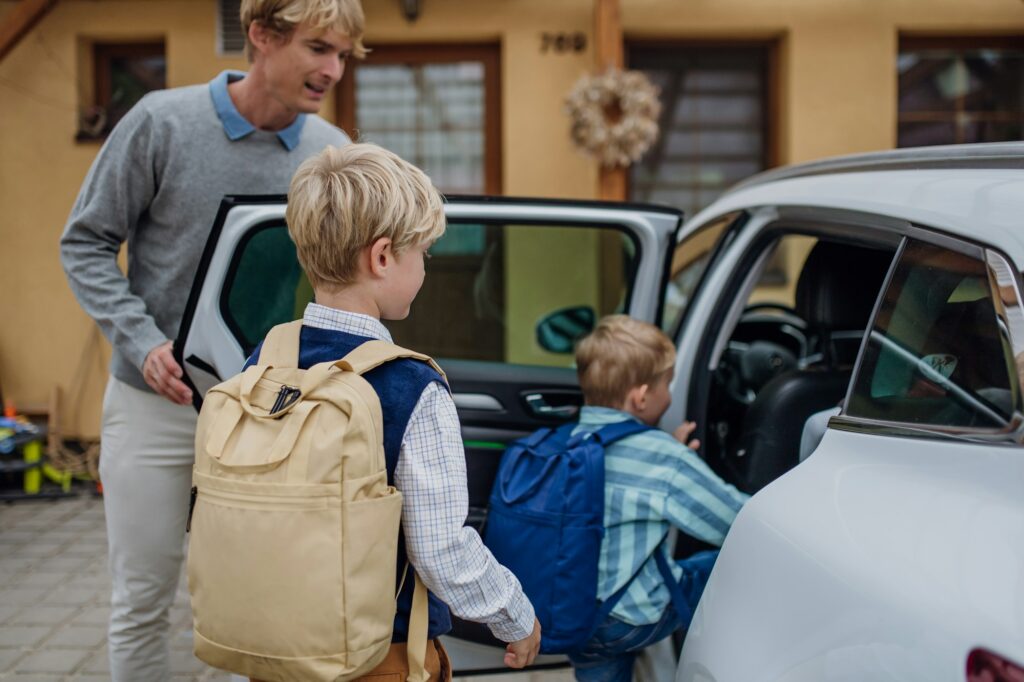
The first day of kindergarten can be nerve-racking for both kids and parents. Your child will need to be somewhat independent during classroom activities, transitions and playtime. Many children with medical conditions and disabilities don’t get much time to work on these skills before school starts. They may need therapy to reach certain developmental milestones or build up the strength they need to stand, walk, and play with their peers.
Seasonal programming during the summer can be a great opportunity for children to ease into a school-like environment. They’ll receive one-on-one therapy to work on individual goals and interact with others their age during group activities.
This article describes nine types of milestones your child can work on during summer seasonal programming to prepare for kindergarten.
How can a seasonal program prepare my child for kindergarten?
Summer programs are short but intensive and goal-driven sessions. They allow children with a wide range of diagnoses, conditions and disabilities to work on age-appropriate therapy goals. Children preparing for kindergarten will receive physical, occupational, speech and music therapy to help them with kindergarten readiness. Your child will receive an individualized treatment plan based on their unique goals and abilities. They might work on introductory academic skills or skills that help them care for themselves at school. Or they might work on motor skills for coordinated movement and dexterity or strengthening. All children will participate in group activities for fun and nurturing social experiences.
9 ways Ability KC’s seasonal programs prepare children to transition into kindergarten
There are a few key differences between preschool and kindergarten that require a certain skill level. Children entering kindergarten need to know how to do more tasks independently, like washing their hands or putting on their coat and shoes. They need communication, memory, and motor skills and strength to participate in classroom activities. They’ll also need to name and talk about sensory input, like pictures, colors and sounds. Of course, they’ll need familiarity with some letters and numbers.
Kindergarteners need to be independent during the school day without a parent or caregiver present. Some with conditions and disabilities that affect their development will need some extra support. Summer programming at Ability KC combines one-on-one and group sessions. Children are able to work on these skills while learning how to interact with other kids.
Your child can work on the following kindergarten readiness milestones during seasonal programming:
- Expressive communication — Your child will need to communicate with their teachers and other students about their environment, activities they’re working on and things they can see. They’ll use basic elements like their name and comparison words like more, less, big, small, top and bottom.
- Gross motor skills — These are movements that involve the entire body, like running, jumping, and throwing, catching and bouncing a ball.
- Fine motor skills — These are the coordination skills your child will need to use classroom materials. Books, pencils, crayons, glue sticks and safety scissors, for example
- Self-care skills — You won’t be there to help your child take care of themselves and transition to new activities during the school day. They’ll need to do things like use the bathroom, put their coat on and follow directions for themselves.
- Sensory input — These skills help your child engage with visuals like pictures and puzzles, objects they can touch, and sounds or music. They’ll need to be able to talk about what they’re experiencing and find differences and patterns.
- Social skills — Your child will need to know some basic things about themselves and your family, such as your first and last names, their age, and their gender. They’ll also need to be able to handle social interactions with other kids somewhat independently.
- Strengthening — Kindergarteners need to carry school supplies, walk and stand for longer periods, or play during gym and recess. Kids with certain conditions or disabilities may need to build up their strength.
- Working and long-term memory — Your child will use working memory to answer questions about stories or pictures they’re interacting with and do activities like matching games or red light, green light. They’ll need long-term memory to summarize stories they’ve heard or sing familiar songs with their class.
- Introduction to academic skills — Your child won’t be expected to read or do math equations on their first day of kindergarten. They will need to be able to count to five, recognize some letters and sight words, and associate written numbers with corresponding objects. They’ll also need to understand the basic concepts of addition and subtraction.
Explore children’s seasonal programming at Ability KC
Is your child approaching kindergarten age? You can set them up for success in kindergarten and elementary school. And seasonal programming at Ability KC is for more than just kindergarten readiness! We help children with disabilities and complex medical conditions reach age-appropriate milestones. Summer seasonal programming helps children from kindergarten age to about 10 years old with various skills that will help them in the next school year and their lives outside of school.
Kindergarten readiness is something we help with in our Children Achieving Milestones Program. Children participate in group and individual therapies to sharpen their skills, develop new abilities and work toward unique goals. If your child has a year or two before they’ll be old enough for kindergarten, they may be a good candidate for our therapeutic preschool.
How do you know your family can trust Ability KC? We’re a designated Comprehensive Outpatient Rehabilitation Facility (CORF). We also maintain accreditation from the Commission on Accreditation of Rehabilitation Facilities (CARF). This means we exceed both national and international standards for medical rehabilitation facilities.
Ready to learn more about admissions? Contact our team today for more information or to schedule an initial appointment. We’re here to answer any questions you have.